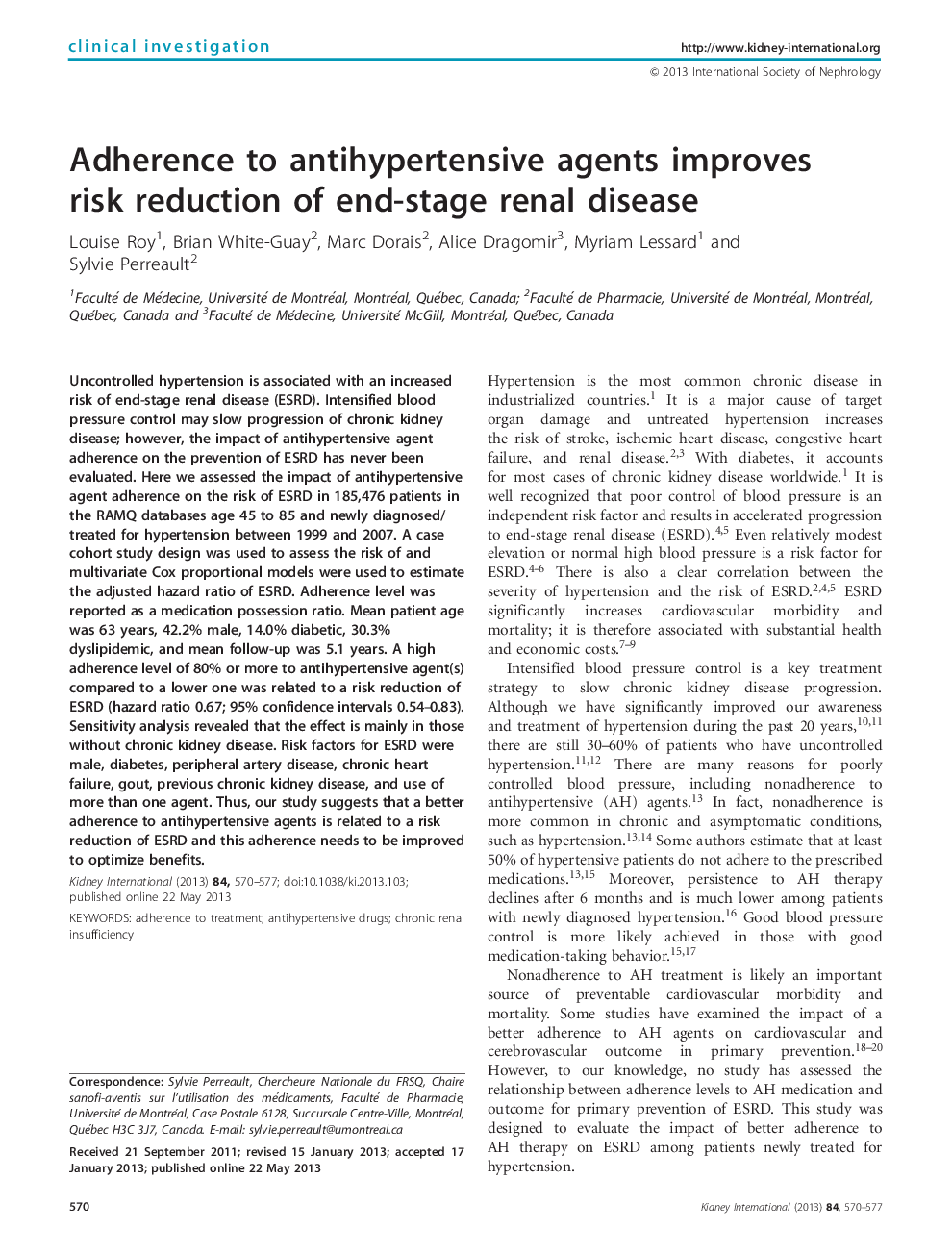| Article ID | Journal | Published Year | Pages | File Type |
|---|---|---|---|---|
| 6164890 | Kidney International | 2013 | 8 Pages |
Uncontrolled hypertension is associated with an increased risk of end-stage renal disease (ESRD). Intensified blood pressure control may slow progression of chronic kidney disease; however, the impact of antihypertensive agent adherence on the prevention of ESRD has never been evaluated. Here we assessed the impact of antihypertensive agent adherence on the risk of ESRD in 185,476 patients in the RAMQ databases age 45 to 85 and newly diagnosed/treated for hypertension between 1999 and 2007. A case cohort study design was used to assess the risk of and multivariate Cox proportional models were used to estimate the adjusted hazard ratio of ESRD. Adherence level was reported as a medication possession ratio. Mean patient age was 63 years, 42.2% male, 14.0% diabetic, 30.3% dyslipidemic, and mean follow-up was 5.1 years. A high adherence level of 80% or more to antihypertensive agent(s) compared to a lower one was related to a risk reduction of ESRD (hazard ratio 0.67; 95% confidence intervals 0.54-0.83). Sensitivity analysis revealed that the effect is mainly in those without chronic kidney disease. Risk factors for ESRD were male, diabetes, peripheral artery disease, chronic heart failure, gout, previous chronic kidney disease, and use of more than one agent. Thus, our study suggests that a better adherence to antihypertensive agents is related to a risk reduction of ESRD and this adherence needs to be improved to optimize benefits.
